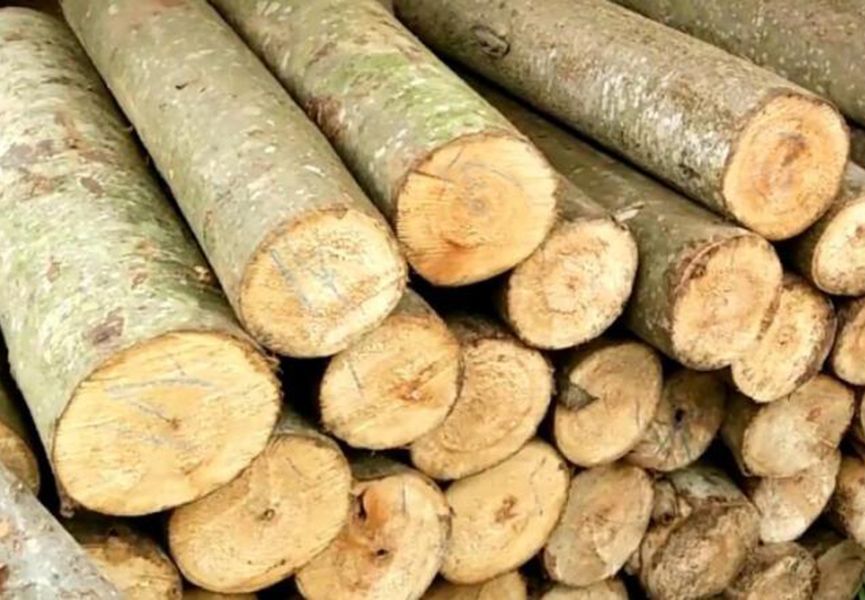E-mail: info@plywoodworking.com Phone: +8615854986399
E-mail: info@plywoodworking.com Phone: +8615854986399
Exploring Albasia Wood: A Sustainable Solution for the Timber Industry
Albasia wood, also known as Sengon (scientific name: *Albizia Falcata*), is a remarkable species that has gained popularity due to its fast growth, lightweight nature, and versatility. Primarily found in Southeast Asia, particularly in Indonesia, this wood is rapidly becoming a staple in both the local economy and various industries worldwide. In this article, we will delve into the unique characteristics, uses, and benefits of Albasia wood, as well as its growing importance in sustainable forestry practices.

*Unique Features of Albasia Wood*
One of the most notable features of Albasia wood is its incredibly fast growth rate. The trees can be harvested within just 3-5 years, making it one of the most renewable timber sources available. This rapid growth allows Albasia plantations to be a highly sustainable option, particularly in regions with deforestation concerns.
Albasia trees are highly adaptable to different environmental conditions. They can thrive in a variety of terrains, including highlands, lowlands, and even areas with poor soil quality. This adaptability extends to regions with varying levels of rainfall, allowing for its cultivation in both tropical rainforests and drier areas.
Albasia wood itself is characterized by its pale yellow color, straight grain, and lightweight structure. It has a specific gravity ranging from 0.24 to 0.30 after kiln drying, with a moisture content of 8-12%. Despite being lightweight, Albasia has a surprisingly strong strength-to-weight ratio, making it suitable for a wide range of applications. The wood’s smooth texture and ease of machining further enhance its versatility.
*Applications of Albasia Wood*
Albasia wood has become highly sought after for various uses due to its light weight and workability. Here are some of the most common applications:
1. *Plywood and Blockboard*: One of the major uses of Albasia wood is in the production of plywood and blockboard. Its lightweight nature makes it an ideal material for core layers, reducing the overall weight of the final product while maintaining strength and durability.
2. *Furniture Manufacturing*: Due to its aesthetic appeal, featuring a bright color and fine grain, Albasia wood is popular in the production of furniture. Its light weight and ease of shaping allow for the creation of intricate designs and high-quality finishes, particularly for indoor furniture pieces like tables, chairs, and cabinets.
3. *Finger-Jointed Laminated Products*: Albasia wood is commonly used for finger-jointing, a technique where shorter pieces of wood are joined together to form longer panels. These are used in applications such as door cores and window frames.
4. *Construction Materials*: The wood’s lightweight and high strength-to-weight ratio make it suitable for use in lightweight plywood and construction materials, particularly for interior applications like partition walls and paneling.
5. *Reforestation Efforts*: Beyond its industrial uses, Albasia wood plays an important role in environmental conservation. Its fast-growing nature helps reforest critical land, prevent soil erosion, and maintain groundwater reserves. This makes it an eco-friendly choice for both timber production and environmental restoration.
|
|
Economic and Environmental Benefits
Albasia wood’s sustainability is one of its greatest advantages. Because it grows quickly and is often planted by local farmers, it serves as a reliable income source for low-income communities in regions like Indonesia. Its cultivation helps support local economies while reducing pressure on natural forests, which are often over-harvested for hardwood species. This not only provides a steady supply of timber but also contributes to environmental conservation.
From an environmental standpoint, Albasia wood can help mitigate climate change impacts by reducing deforestation and promoting reforestation. Its ability to grow in diverse conditions makes it ideal for rehabilitating degraded lands and improving soil health.
|
|
Challenges and Considerations
Despite its many advantages, Albasia wood does have some limitations. It is not naturally rot-resistant and is prone to warping and shrinking if exposed to moisture over time. For this reason, Albasia wood is best suited for interior applications or must be treated for outdoor use to prevent damage. Regular maintenance is essential to extend its lifespan, especially in areas with high humidity or varying weather conditions.
Conclusion
Albasia wood stands as a sustainable and versatile option in the timber industry. Its fast growth, lightweight structure, and wide range of applications make it a popular choice for plywood, furniture, and other wood-based products. Additionally, its role in environmental conservation and its contribution to local economies highlight the many benefits of this remarkable wood species. As the demand for eco-friendly materials continues to grow, Albasia wood is poised to play an increasingly important role in the future of sustainable forestry and timber production.By adopting Albasia wood, industries and consumers alike can help reduce the strain on natural forests and promote a greener, more sustainable future.
If you're in need of reliable and efficient machinery to process Albasia wood, whether for plywood production, blockboard manufacturing, or any other wood-based applications, our company can provide the perfect solutions. We offer advanced veneer peeling machines, plywood hot press machines, and other woodworking equipment specifically designed to handle the unique characteristics of Albasia wood. Feel free to contact us to discuss your machinery needs, and let us help you optimize your production process with high-quality, durable equipment tailored to your requirements. Mobile/WhatsApp: +8615854986399. E-mail: info@plywoodworking.com, woodmachine@hotmail.com.
Mobile/whatsapp:
+8615854986399
E-mail:
info@plywoodworking.com
woodmachine@hotmail.com
Address:
No.100 Lingong Road, Comprehensive Bonded Zone, Linyi,Shandong,China.